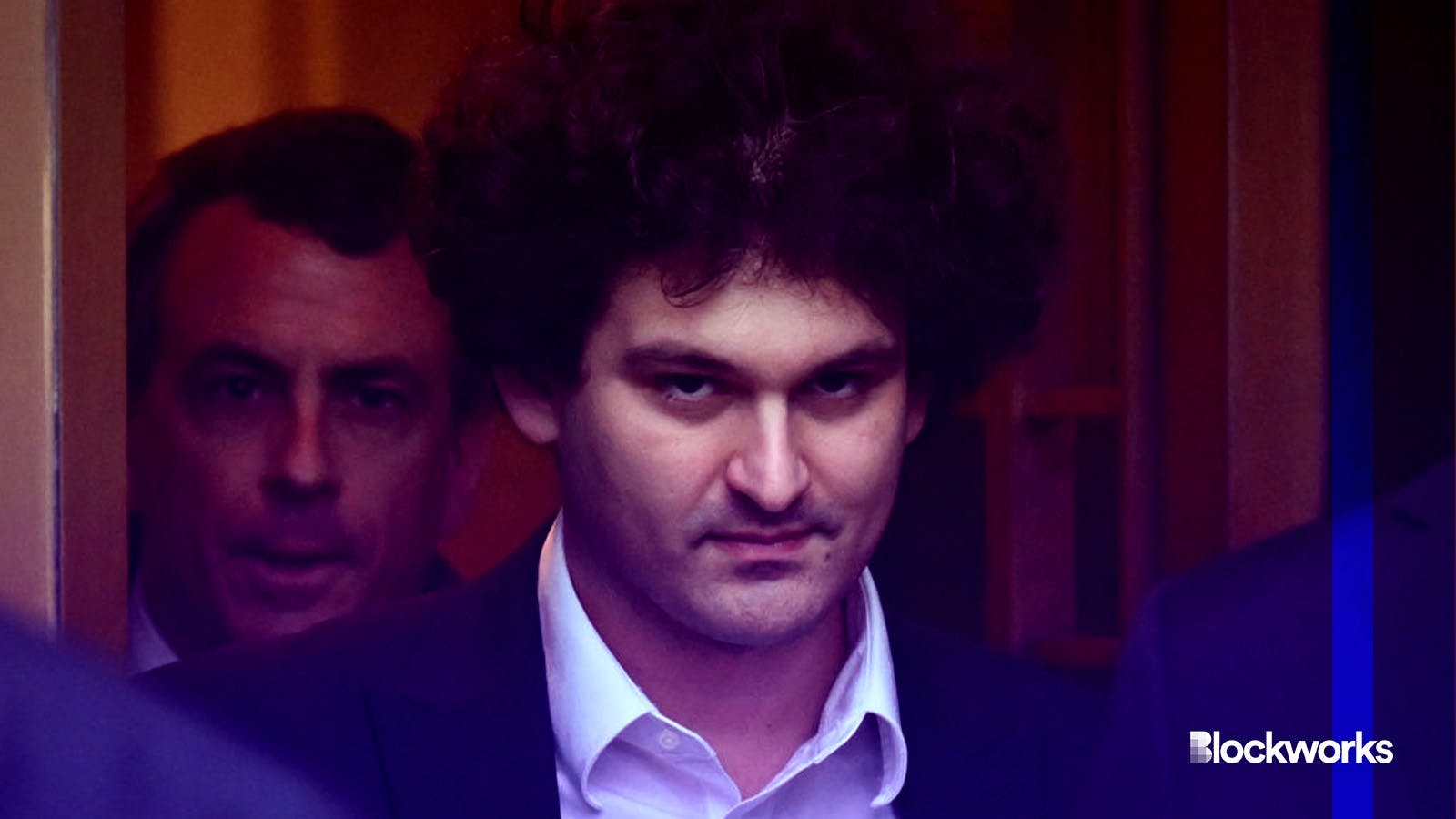Bankman-Fried’s legal team argues for leniency, citing philanthropy and character
29 family members, doctors and victims write to judge Lewis Kaplan asking for leniency for Sam Bankman-Fried

FTX co-founder Sam Bankman-Fried | Getty Images modified by Blockworks
Sam Bankman-Fried will be back in court next month, this time asking for leniency. The disgraced founder of FTX was convicted of seven counts of fraud and conspiracy last year.
Bankman-Fried’s team is proposing the former billionaire serve between 63 and 78 months in prison, per a memo filed by attorneys late Tuesday. His convictions carry a maximum sentence of 110 years.
“Sam is not the ‘evil genius’ depicted in the media or the greedy villain described at trial. He is a 31-year-old son, brother, friend, humanitarian and philanthropist,” the memo states, adding that Bankman-Fried is “deeply, deeply sorry” for “the pain he caused.”
Read more: Sam Bankman-Fried will not haunt us forever
The nearly 400-page document filed just before midnight contains 29 letters of support from people including Bankman-Fried’s family, former employees, doctors and victims of his fraud.
The letters discuss Bankman-Fried’s character, including anecdotes from his life before FTX and philanthropic efforts he advanced as head of the exchange.
His mother, Barbara Fried, writes about a time in college when Bankman-Fried comforted a grieving friend. Kat Woods, a former FTX customer, told the court that while she has “been harmed immensely” by Bankman-Fried’s actions, the disgraced founder “clearly isn’t evil.”
Several writers mention his vegan diet and restrained lifestyle.
“Even as a billionaire, he drove the most basic car that was available,” Dr. George Lerner, Bankman-Fried’s psychiatrist wrote. “He wore ragged t-shirts and shorts. He cooked most of his own meals, usually frying Trader Joe’s vegan meat with sparse vegetables, making enough for any housemates or drop-ins who were around.”
Bankman-Fried has opted to shake up his legal team since his conviction last November. He retained Marc Mukasey and Torrey Young last month, a move judge Lewis Kaplan approved last week after making sure Bankman-Fried was aware of his right to “conflict free representation.”
Mukasey and Young also represent Alex Mashinsky, the former CEO of now-shuttered Celsius who is scheduled to stand criminal trial in New York in January 2025.
Mark Cohen, Christian Everdell and their colleagues, who represented Bankman-Fried through his trial, withdrew from the case earlier this month.
Bankman-Fried’s sentencing hearing is scheduled for March 28 in New York.
Former FTX director of engineering Nishad Singh, who cooperated with prosecutors as a witness against Bankman-Fried, is slated to be sentenced in November. Former FTX co-CEO Ryan Salame, who pleaded guilty and did not cooperate as a witness, was originally scheduled to be sentenced ahead of Bankman-Fried but his hearing was moved last week to May 1.
Other cooperating witnesses including former Alameda Research CEO Caroline Ellison and former FTX Chief Technology Officer Gary Wang have not yet had sentencing hearings scheduled.
Bankman-Fried is currently in the Metropolitan Detention Center, where he has been since his bail was revoked in August 2023.
Get the news in your inbox. Explore Blockworks newsletters:
- The Breakdown: Decoding crypto and the markets. Daily.
- 0xResearch: Alpha in your inbox. Think like an analyst.






